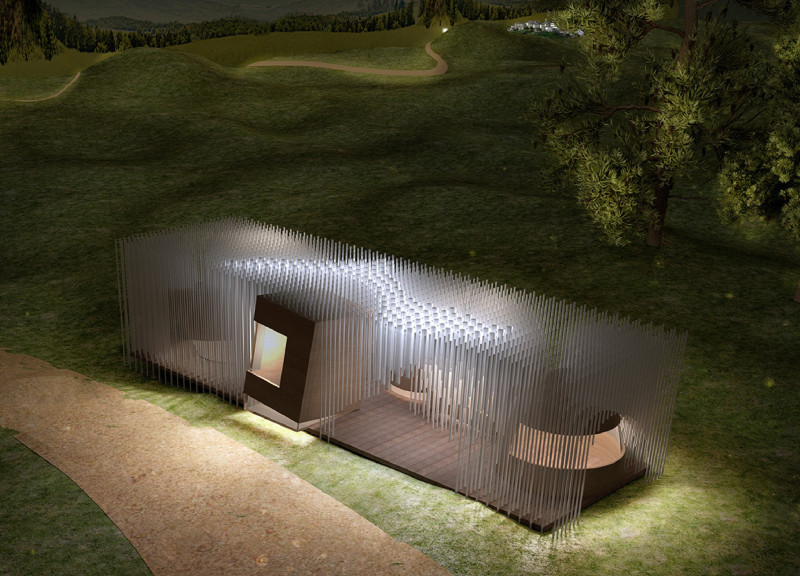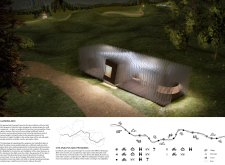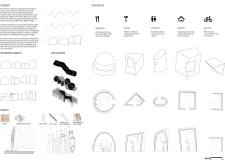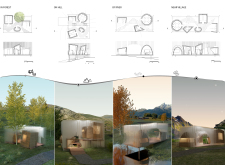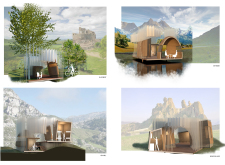5 key facts about this project
The design features a series of modular bicycle stop cabins located along the EuroVelo 6 cycle route, which spans ten countries in Europe. Each cabin is designed to serve a specific purpose, enhancing the experience for cyclists who navigate through varied landscapes. The project emphasizes privacy and usability, showcasing a thoughtful arrangement of functional elements.
Modular Design
Each cabin includes designated spaces for different activities, such as dining, cooking, sleeping, and bike storage. This modularity allows for flexible configurations depending on the site. By thoughtfully organizing each cabin, the design maximizes available space while ensuring that essential services are easily accessible to users.
Translucent Structure
The cabins are enveloped within a translucent box formed by rods of different lengths. This structure provides privacy and defines the spaces within. By day, it creates a sheltered environment for users, while at night, integrated lighting illuminates the pathways around the cabins. This guiding light enhances safety for cyclists, helping them navigate in the dark.
Geometric Distortion
One notable feature is the geometric distortion seen in the cabin designs. This approach adds a unique visual quality, making the cabins engaging elements within their surroundings. The lower sections of the cabins utilize reflective glass, creating a floating effect that allows the structures to blend into the landscape while offering users an intriguing aesthetic experience.
Material Considerations
The materials used in the project include wood for the cabin structures and mirror-coated glass for reflective surfaces. Steel components add essential support, ensuring stability. Translucent polycarbonate is used for the rod framework, allowing light to filter through while providing privacy. These material choices balance visual appeal with practical considerations.
The design shows a thoughtful response to the needs of cyclists, fostering a connection with the natural environment. Subtle illumination along pathways creates a welcoming atmosphere, adding to the overall experience of using these bicycle stops.


